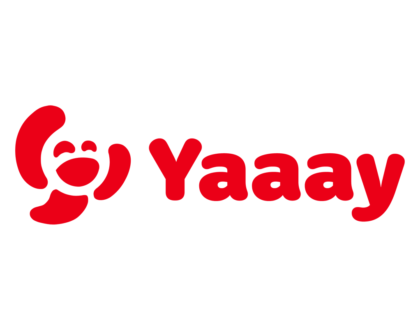How to prepare for the call from Human Resources

by Madelaine
Answering the phone in Japanese makes you nervous? What if messing up during the call will cost you that job you really want?
If you have thoughts like these, then you are not alone. Almost everyone I know needed a push and some practice until they got comfortable just chatting away in Japanese on the phone.
Knowing what to expect can go a long way. That’s why below you can find a sample conversation that will give you common questions, vocabulary, and expressions, that will help you ace your next phone call with human resources.
コンテンツ
Why do Japanese companies call?
In many other countries, companies prefer e-mail during the hiring process. So why do Japanese companies choose not to use e-mail to make appointments?
Japanese companies prefer to communicate directly. Human resources will contact candidates by phone during the entire selection process. The main purpose of these calls is to set up appointments for the next job interview or company seminar. So, rest assured, that you wont have to deal with an impromptu interview.
You won’t be asked complex questions or anything. Just remember your good manners, get familiar with the typical flow, and you will be all set for your Japanese call!
What to prepare
Before we dive in, here is some general advice to keep in mind. You never know when that important phone call might come, so be ready at all times!
- ✔ Carry your phone with you and set it to loud
- ✔ Have a memo pad within reach
- ✔ Have your schedule close by (not the one on your phone!)
- ✔ Stay calm and talk in a friendly, energetic voice
- ✔ Go to a quiet place when possible
- ✔ Answer the phone within 3 calls (making someone wait longer is impolite!)
The call from HR
So, let’s take a look, shall we?
1. Greetings
You: はい、〇〇です。
HR: お忙しいところ、恐れ入ります。〇〇株式会社の〇〇です。面接の件でお電話いたしました。只今、お時間よろしいでしょうか。
You: はい、大丈夫です。
You: Hello, (name) speaking.
HR: Sorry to call at a busy time. Here is (name) from (company name). I am calling regarding the interview. Is now a good time to talk?
You: Yes, now is fine.
Make sure to talk with a loud, clear and friendly voice. To achieve the right tone, smile while talking!
Also, talk in a higher-pitched voice than you normally would. This is a simple Japanese trick to sound politer.
Be sure to write down the name of the caller and the company.
2. Invitation
HR: このたびは弊社の説明会(一次面接)のご応募くださいましてありがとうございます。
選考の結果、〇〇さんに是非二次面接に進んで頂きたいと考えております。
You: ありがとうございます!是非、二次の面接を受けさせて頂ければと思います。
HR: ありがとうございます。
HR: Thank you very much for applying to our company seminar (first round of interviews.) The selection results are out, and we would like to invite you to a second interview.
You: Thank you very much! I am looking forward to attending the second interview.
HR: Thank you very much.
You are invited to a company seminar or the next round of job interviews. If you receive good news, be sure to thank the caller.
3. Schedule
HR: では、面接の日程についてですが、〇〇日の〇時からのご都合はよろしいでしょうか?
If the answer is no:
You: 申し訳ございません。あいにく、そちらの日は都合が悪く、参加できません。
誠に恐縮ですが、他の日程でおねがいできないでしょうか。
HR: わかりました。では、◯◯日の〇時からはいかがでしょうか?
If the answer is yes:
You: はい、そちらの日程でお願いいたします。
HR: では、◯◯日の〇時に当社ビル3階の受付までお越しください。
HR: Regarding the date of the interview, is (day) (time) possible for you?
You: I am very sorry, but I cannot attend at that time.
Is it possible to do the interview another day?
HR: Okay, would (day) (time) work for you?
You: Yes, that sounds fine.
HR: Please come to the reception on the third floor of our office building on (day) (time).
If the time does not work for you, tell HR honestly why you cannot participate, and ask for another date. (If your plans are watching a movie with friends or something similar, maybe consider rescheduling your free-time activity).
4. Double Check
You: かしこまりました。〇月〇日の〇時ですね。
どなた様宛てにおうかがいすればよろしいでしょうか?
HR 人事部の〇〇あてにお願い致します。
You: 承知いたしました。
御社本社ビルに〇月〇日の〇時、人事部の〇〇様宛にお伺いいたします。
You: Okay, on (month) (day) (time), right? Who should I ask for when I arrive?
HR: (Name) from HR.
You: Understood. On (month) (day) (time) I will come to your company and ask for (name).
Write down and repeat all the information the caller gives you. After you hung up the phone you need to know exactly:
- ✔ Who called (name, company)
- ✔ When the event is held (date and time)
- ✔ Where you need to go (address and floor)
- ✔ What to bring (CV, pen, notebook, etc.)
- ✔ How to contact them when you arrive (phone number, internal or external phone)
5. Questions
HR: 何か質問はございませんか?
You: いいえ、特にございません。
HR: Do you have any questions?
You: Not at the moment.
If you have any further questions, now is your time to ask. Try to think about any questions you may have in advance. It is a chance to get some more information before the interview. Not asking any questions might be interpreted as a lack of interest in the company.
6. Goodbyes
HR: では、当日お待ちしています。
You: はい、よろしくお願い致します。本日はお電話いただき、ありがとうございました。では、失礼いたします。
HR: I will be waiting for you.
You: Thank you for your call today. Goodbye.
Make sure to thank them for the call. Before hanging up, remember to say 失礼します, the phrase with which you can end all official phone calls in Japan.
Things to remember
Stay calm during the phone call and remember the following things:
- ✔ Speak with a clear and positive voice (high pitched is more polite).
- ✔ Don’t speak too quickly.
- ✔ Thank them for being invited.
- ✔ If the date is not good for you, tell them the reason (class etc.)
- ✔ Repeat all relevant information (day, time, location of event, what to bring, caller’s name, etc.)
- ✔ Thank the caller for taking the time to reach out to you at the end of the call.
- ✔ Say 失礼いたします and hang up.
Don’t panic!
If you cannot understand what the other person is saying, just stay calm and ask them to repeat what they just said.
You: 恐れいりますが、お電話が遠いようですので、もう一度「お話/御社名を教えて」頂けますでしょうか?
You: I am really sorry, but I cannot hear you very well, could you repeat what you just said/tell me your company name once again?
In case you cannot talk at that moment or it is simply too loud, ask for their phone number and say when you will call them back.
You: 今、外におりまして、落ち着いてお話しさせて頂くことができませんので、10分後にかけなおさせていただいてよろしいでしょうか?
HR: 分かりました。では〇〇‐〇〇〇〇‐〇〇〇〇、〇〇あてにご連絡ください。
You: ありがとうございます。復唱いたします。〇〇‐〇〇〇〇‐〇〇〇〇、〇〇様で、よろしいでしょうか?
HR: 間違いありません。
You: 承知いたしました。それでは、10分後にご連絡いたします。
HR: お待ちしております。それでは失礼いたします。
You: 失礼いたします。
You: I am really sorry, but I cannot talk at the moment. May I call you back in 10 minutes?
HR: Okay, no problem. You can reach me under 〇〇‐〇〇〇〇‐〇〇〇〇.
You: Thank you very much. Let me repeat. 〇〇‐〇〇〇〇‐〇〇〇〇、(name), yes?
HR: That is correct.
You: Thank you very much. I will call back in 10 minutes.
HR: I will be expecting your call.
You: Goodbye.
Missed a call?
If you could not answer the phone, call back as soon as possible. Waiting too long can leave a bad impression.
In case you do not recognize the number, try to look it up online. Often you are able to find out the company name that way.
If you are lucky, the person who tried to call you will pick up the phone when you call. In that case, quickly introduce yourself (in Japan usually by name and university) and they should know who you are.
For the possibility that someone else answers the phone, prepare a sentence to explain why you are calling. Also, let them know the name of your contact person at their company. Otherwise, they might not know who to connect you with.
Practice, practice, practice!
The best way to get used to answer the phone in Japanese is to practice. Use the example conversation above and try to remember the typical flow and the key expressions.
You can also practice together with a friend. Once you know what to expect during a phone call, it will get easier to understand what Japanese native speakers are saying.
Of course, every conversation is a little different. Just stay calm when you hear something you don’t understand and ask them to repeat what they said.
Have you ever been asked anything unexpected by Japanese companies on the phone?
You want to work in Japan?
Learn Business Japanese from the pro’s to get the job you want!
Find out more Business Japanese School in Tokyo



